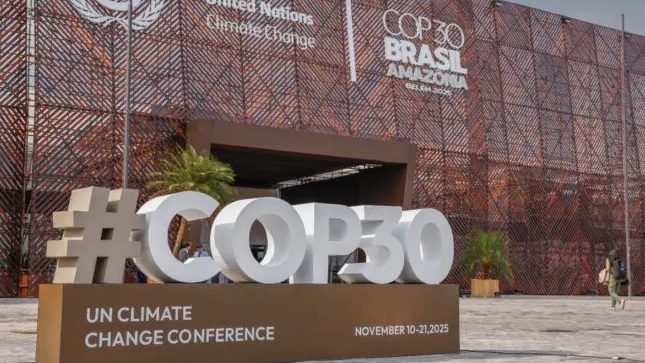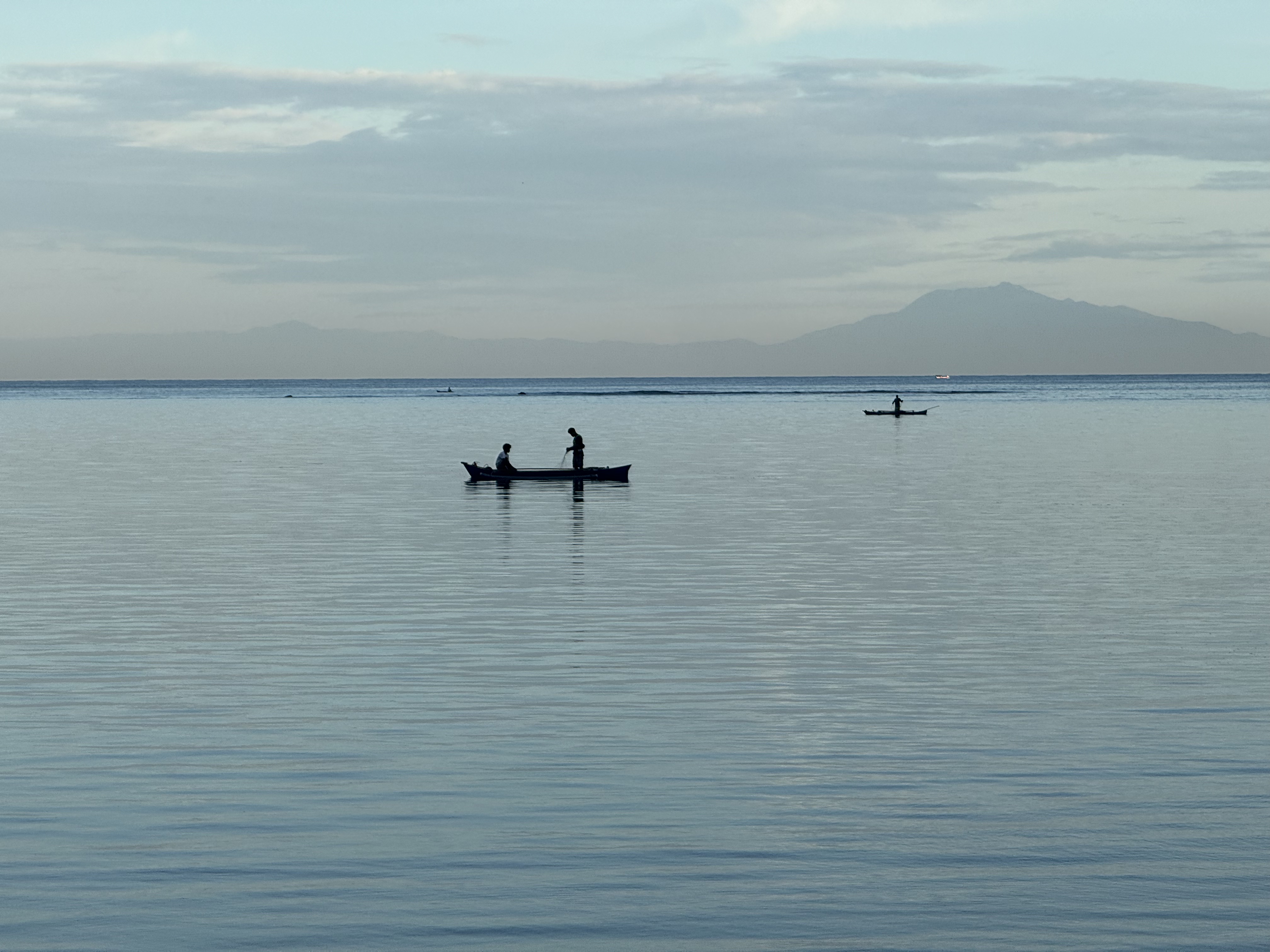The world is facing a range of interconnected crises, including economic instability, political insecurity and the dire impacts of climate change. These challenges disproportionately affect billions of people around the world, particularly those from the Global South – leaving many feeling helpless and lacking hope for the future. Young people, in particular, carry the weight of an increasingly uncertain future. Each day, we experience the impacts of climate change and witness our peers' lives disrupted by severe weather events, displacement and loss of livelihoods among many others. What is particularly sad is that youth have done little to contribute to this uncertain future that we now inherit. The impacts we face are a legacy left by past generations and those currently in power. It is our generation that is often left to pick up the pieces, despite being largely excluded from decision-making processes that affect our lives.
The harsh reality is that while our generation is calling for change, we often find ourselves feeling the most vulnerable. Amidst this confusion, the urgent need for action becomes increasingly evident. Now more than ever, the experiences and perspectives of communities, including youth and other marginalised communities from the Global South, must be at the forefront of the conversation and their voices should be heard. This blog sheds light on what the world truly needs to cultivate real and meaningful change – LOVE.
Despite years of calls for action, climate change is continuing to worsen
As climate change continues to intensify, developing countries and the communities within them are experiencing unprecedented loss and damage – the negative effects of climate change that occur despite efforts to mitigate global warming through reduced greenhouse gas emissions and adaptation strategies. From devastating hurricanes in the Caribbean to droughts in sub-Saharan Africa and other countries experiencing the impacts, it is the most vulnerable communities and countries that face the most dire consequences of climate change. The impacts result from the extreme weather events such as flooding, cyclones, wildfires and slow onset climatic processes including such as sea level rise, temperature rise, ocean acidification, glacial retreat, land and forest degradation, biodiversity loss, desertification and salinisation.
I have been hearing many devastating experiences shared by hundreds of thousands of individuals, particularly youth representing their countries from the Global South, in the rooms of the UN climate negotiations, including my own experience from my home country, Rwanda. Many youth voices, often the most passionate advocates for their communities, are stepping forward to share the harsh realities of climate change they face. I first started hearing these stories when I began engaging in climate negotiations in 2021 at the 26th Conference of Parties (COP 26) in Glasgow. Unfortunately, to this day, my fellow young people and many others from the Global South are still calling for clear climate action to save vulnerable communities that have contributed least to climate change but bear its brunt.
Engaging in the climate action process has deepened my understanding of the underlying causes of the climate crisis. A large portion of both historical and current global greenhouse gas emissions comes from developed countries. Although per capita emissions in developing nations are relatively low, these countries are expected to increase their emissions as they work to fulfill their social and development needs. This issue is further complicated by a global framework shaped by colonialism, capitalism, multinational corporations and conflicts. Developed countries have created the conditions that exacerbate this crisis, yet they have failed to adequately support developing countries in achieving sustainable development or providing necessary resources for climate action. For three decades, countries from the Global South have called for meaningful climate action, but the worsening impacts of climate change signal that we are falling short. Climate change impacts are worsening, leaving my generation to wonder if we will be able to cope with the severe challenges that lie ahead. Every decision adopted at the UN climate change negotiations falls far short of the expectations of vulnerable developing countries – it is SAD!
The pressing question remains: how can we genuinely bring meaningful change to ensure that the commitments made by developed countries most responsible for climate change result in sustainable solutions? Despite the repeated calls for global solidarity, progress is often delayed or stops at the implementation point. While some decisions may appear promising, the true challenge lies in the implementation by developed countries and the lack of resources for developing nations. Thus, to foster genuine global solidarity that drives effective climate action, we must first embrace compassion and empathy for those suffering the devastating consequences of climate change – those losing loved ones, facing environmental degradation and dealing with displacement. Ultimately, what we truly need is LOVE – a genuine love of all humans, all species and all ecosystems.
I am always inspired by my work and my amazing teams at the Loss and Damage Collaboration (L&DC) and the Climate Leadership Initiative (CLI) – we talk a lot about love! Our work is driven by the love we have for those we are advocating for every day, the communities on the frontlines of climate change. I wonder if we all put love at the center of our work and learned to love ourselves and everyone around us, we would not need to attend 29 or so conferences of countries and travel long distances to make decisions we often know will not be implemented or will take longer to be implemented and lead to real change.
Let us champion compassion, empathy and love as the cornerstone of meaningful change
The challenges faced by the Global South demand a united and robust global response. Wealthier nations, historically the largest contributors to climate change, bear a responsibility to support those most affected. This support should encompass not only financial and technical assistance but also the transfer of technology, capacity building and related initiatives. However, beyond these changes, it is essential for the developed countries to step up and acknowledge their historical responsibilities and obligations.
We must embrace a deeper call for compassion and understanding. As Nivedita Josh beautifully articulates in her blog on love:
“While climate change’s devastation brings urgency and despair, within this harsh reality lies a powerful force: love. Love can inspire individuals and communities to confront these challenges with determination, inspiring a shift toward a more empathetic approach. It nurtures our commitment to advocate for climate-positive policies and encourages active participation in mitigating losses. This love fosters community, collaboration and innovative solutions.”
I am also profoundly inspired by our exceptional leader, Erin Roberts, who, in her blog “With Open Hearts We Can Create a Different World,” urges those in influential positions to extend their hearts further. She invites us to consider the realities faced by leaders in developing nations – struggling to ensure the well-being of their citizens while facing the relentless impacts of climate change.
As we move forward, I call upon each of us, whether young or old, privileged or otherwise, to truly recognise the urgency of this moment. Let us go beyond the political climate negotiations that often fall short of delivering the sustainable solutions for climate action that vulnerable communities genuinely seek. Instead, let’s commit to fostering genuine human connections. Showing up for those who are suffering, engaging in conversations that build understanding and fostering more empathy and love for one another. By grounding our efforts in love, we can address not only the economic impacts of climate change induced loss and damage but also non economic ones in nature, specifically the emotional scars it leaves on our communities.
To my fellow young people from the Global South, all other communities facing the impacts of climate change and all amazing people out there working tirelessly to raise the voices of those on the frontlines of climate change: the journey ahead may seem discouraging and overwhelming. Yet I believe that by leveraging our collective power of compassion, empathy and love, we can gain more courage to effectively keep pushing and of course address the loss and damage from climate change. Together, we have the potential to create a more just, resilient and kinder world. Let us navigate this as a united force for a future where every young person can dream freely, unburdened by the weight of despair.
Hyacinthe Niyitegeka is a climate negotiator for Rwanda and currently serves as the coordinator for the Loss and Damage Collaboration. She is an alumna of the first cohort of the New Generation Program. Hyacinthe has experience in the fields of Loss and Damage as well as broader climate policy.



